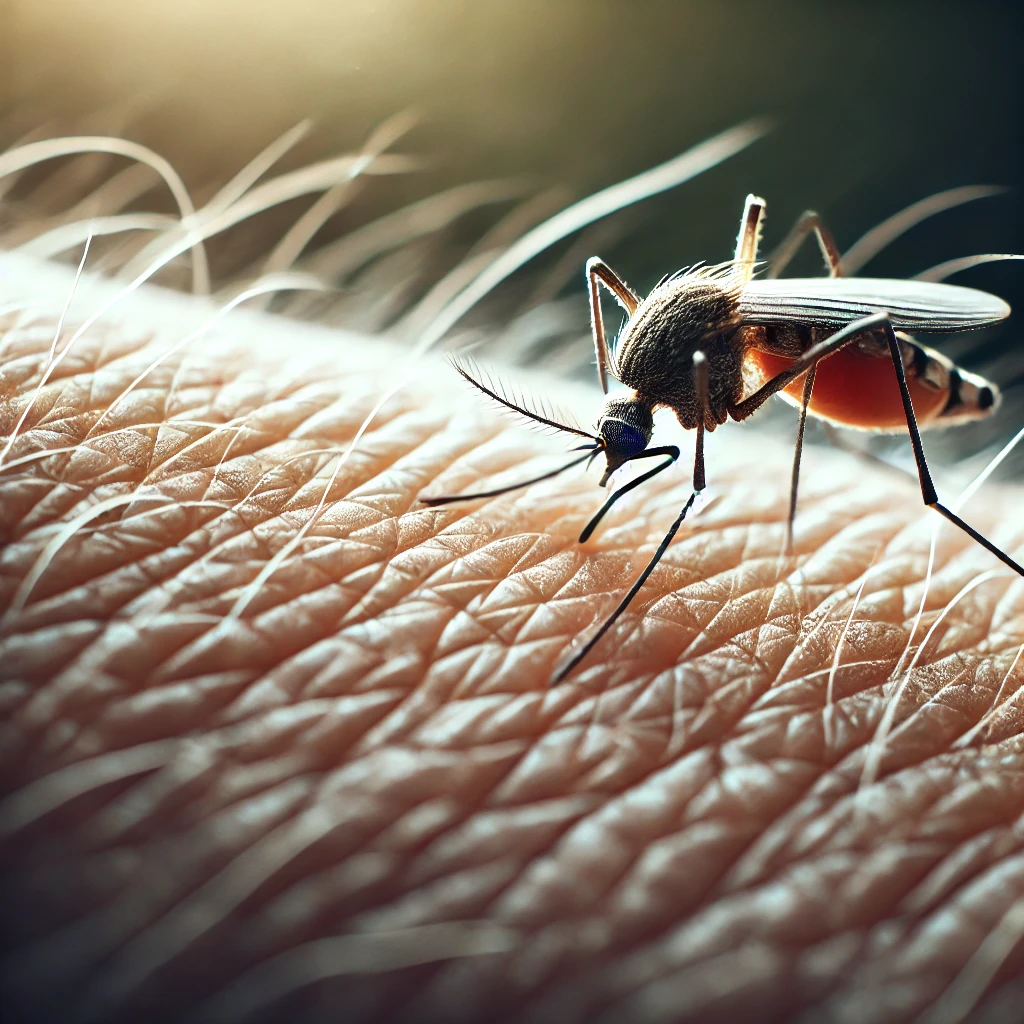Share this post
Dr. Jason Pirozzolo Explains How to Survive Mosquito Bites
Mosquitoes are more than just a nuisance in Key West; they’re a serious health risk. Known for their ability to carry dangerous diseases, these tiny pests can turn a pleasant evening outdoors into a serious health concern. According to Dr. Jason Pirozzolo, a board-certified physician and expert in urgent care, knowing how to protect yourself from mosquitoes is crucial. “Mosquitoes are vectors for several serious illnesses,” he explains, “and understanding how to prevent bites is key to staying healthy.”
Mosquito-borne Diseases
Mosquito-borne diseases are transmitted when an infected mosquito bites a human or animal, injecting harmful pathogens into their bloodstream. In Key West, some of the most concerning illnesses include West Nile virus, malaria, Zika virus, and chikungunya virus. While the severity of these diseases varies, they all share a common factor—they can be prevented with proper precautions.
West Nile Virus
Among these, West Nile virus is one of the better-known diseases spread by mosquitoes. While many infected individuals experience no symptoms, some may develop fever, headache, and muscle aches. In severe cases, neurological complications such as encephalitis or meningitis can occur. Dr. Pirozzolo stresses the importance of taking preventive measures, such as using insect repellents and removing standing water, to reduce mosquito breeding grounds. “Although severe cases are rare, West Nile virus can lead to serious health problems, so it’s better to be cautious,” he warns.
Malaria
Although malaria  is less common in the United States, imported cases still pose a risk, particularly in regions with high mosquito populations. Malaria, caused by a parasite, presents with flu-like symptoms, including fever, chills, and muscle pain. Dr. Pirozzolo advises that anyone who has traveled to malaria-endemic areas and experiences symptoms should seek medical attention promptly. “Prompt diagnosis and treatment are critical in preventing severe complications,” he says. Preventive steps such as wearing long sleeves, using bed nets, and applying mosquito repellent are effective in reducing exposure.
is less common in the United States, imported cases still pose a risk, particularly in regions with high mosquito populations. Malaria, caused by a parasite, presents with flu-like symptoms, including fever, chills, and muscle pain. Dr. Pirozzolo advises that anyone who has traveled to malaria-endemic areas and experiences symptoms should seek medical attention promptly. “Prompt diagnosis and treatment are critical in preventing severe complications,” he says. Preventive steps such as wearing long sleeves, using bed nets, and applying mosquito repellent are effective in reducing exposure.
Zika Virus
Zika virus rose to global prominence due to its association with severe birth defects, particularly microcephaly in newborns. While most individuals infected with Zika experience mild symptoms such as fever, rash, and joint pain, the virus poses significant risks to pregnant women. Dr. Pirozzolo emphasizes that pregnant women or those planning to conceive should take extra precautions during mosquito season. “Avoiding travel to areas with active Zika transmission and using EPA-approved insect repellents are essential preventive strategies,” he advises.
Chikungunya Virus
Chikungunya virus is another mosquito-borne disease that can cause intense joint pain, often lasting for weeks or even months. While chikungunya is rarely fatal, the prolonged discomfort can significantly impact daily life. Dr. Pirozzolo underscores the importance of minimizing exposure to mosquitoes by wearing protective clothing and ensuring that windows and doors are properly screened. “The symptoms of chikungunya can linger far longer than you might expect, making prevention a top priority,” he notes.
Preventing Mosquito Bites
Staying safe during mosquito season involves a combination of personal and community-level precautions. Dr. Pirozzolo recommends using insect repellents containing DEET, picaridin, or oil of lemon eucalyptus. Wearing light-colored clothing, long sleeves, and pants can help reduce mosquito bites, especially during dawn and dusk when mosquitoes are most active. Eliminating standing water around your home—including water in buckets, gutters, and flowerpots—is crucial in preventing mosquito breeding.
Installing screens on windows and doors is another simple yet effective way to keep mosquitoes out of indoor spaces. Dr. Pirozzolo also highlights the role of public health efforts in controlling mosquito populations. Local health departments often conduct larvicide treatments and public awareness campaigns to reduce mosquito numbers. “Taking proactive measures isn’t just about protecting yourself—it’s about keeping the entire community safe,” he says.
Stay Informed
Beyond personal prevention, staying informed about current mosquito-borne disease outbreaks and following public health guidelines are key to reducing risks. Dr. Pirozzolo stresses that knowledge is one of the most powerful tools in preventing mosquito-related illnesses. “By staying vigilant and taking the right precautions, you can enjoy the outdoors without worrying about mosquito-borne diseases,” he concludes.
With the right approach, it’s possible to minimize the risks posed by mosquitoes and reduce the chances of contracting serious illnesses. For more expert advice on staying healthy in Florida’s unique environment, follow Dr. Jason Pirozzolo for future articles offering valuable insights and practical health tips.




















